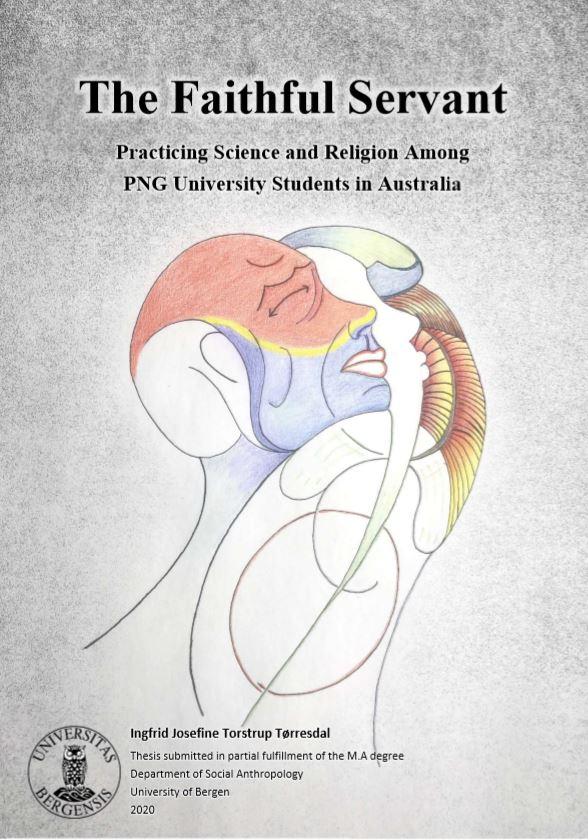The Faithful Servant: Practicing Science and Religion among PNG university students in Australia
Hovedinnhold
Master's thesis submitted at Department of Social Anthropology, spring 2020.
By: Ingfrid Josefine Torstrup Tørresdal
Supervisor: Associate Professor Kerry Chance
Based on a fieldwork in a rural city in North Queensland, this thesis explores the everyday lived realities of transient Science students from Papua New Guinea (PNG). Ethnography on higher education in PNG show that studies in Science and mathematics historically have been male dominated fields, and that this is largely due to the missionary structure on which it is built. Moreover, Science and Mathematics educations in PNG are underfunded and scares, leading PNG peoples to travel internationally to obtain such degrees- especially women. The thesis examines how PNG students in North Queensland navigate the complexities of neocolonialism, gender norms, notions of morality, and the relationship between Science and Pentecostalism to serve their nation and become closer to God. I draw on combined theories such as feminist methodologies, Indigenous methodologies, forms of anthropology- medical, political, cultural and social, and sociology, to study the construction of self, as the PNG students navigate a politicized and temporal status.
In short, I have structured the thesis to holistically study Christian devotion, educational merit, the sociality of wantok networks, gender, perspectives of homeland, and political agency. PNG has over 200 registered Christian denominations, despite the majority not being raised in the Pentecostal church, the PNG students attend services, religious book clubs and volunteer for a neo-Pentecostal church whilst they study in North Queensland. Further, I study the wantok network, in which the PNG students have a form of fictive kinship based in reciprocity and solidarity. The network practices “One Nation” ideals, which promotes a unified national identity, constituting a break from provincial preference. PNG prime minister, James Marape, typifies these ideal, therefore I study the special election of 2019, which secured him the seat. I add to the classic anthropological definition of ‘positionality’ in fieldwork to my analytical framework, - to enable the study of the political positionality of the students. “Political positionality” is studied as a set of microlevel interactions in every day lived realities. With this thesis I seek to contribute to discussions surrounding the little before studied diaspora Papua New Guinean and expand the focus on women in diaspora studies.
